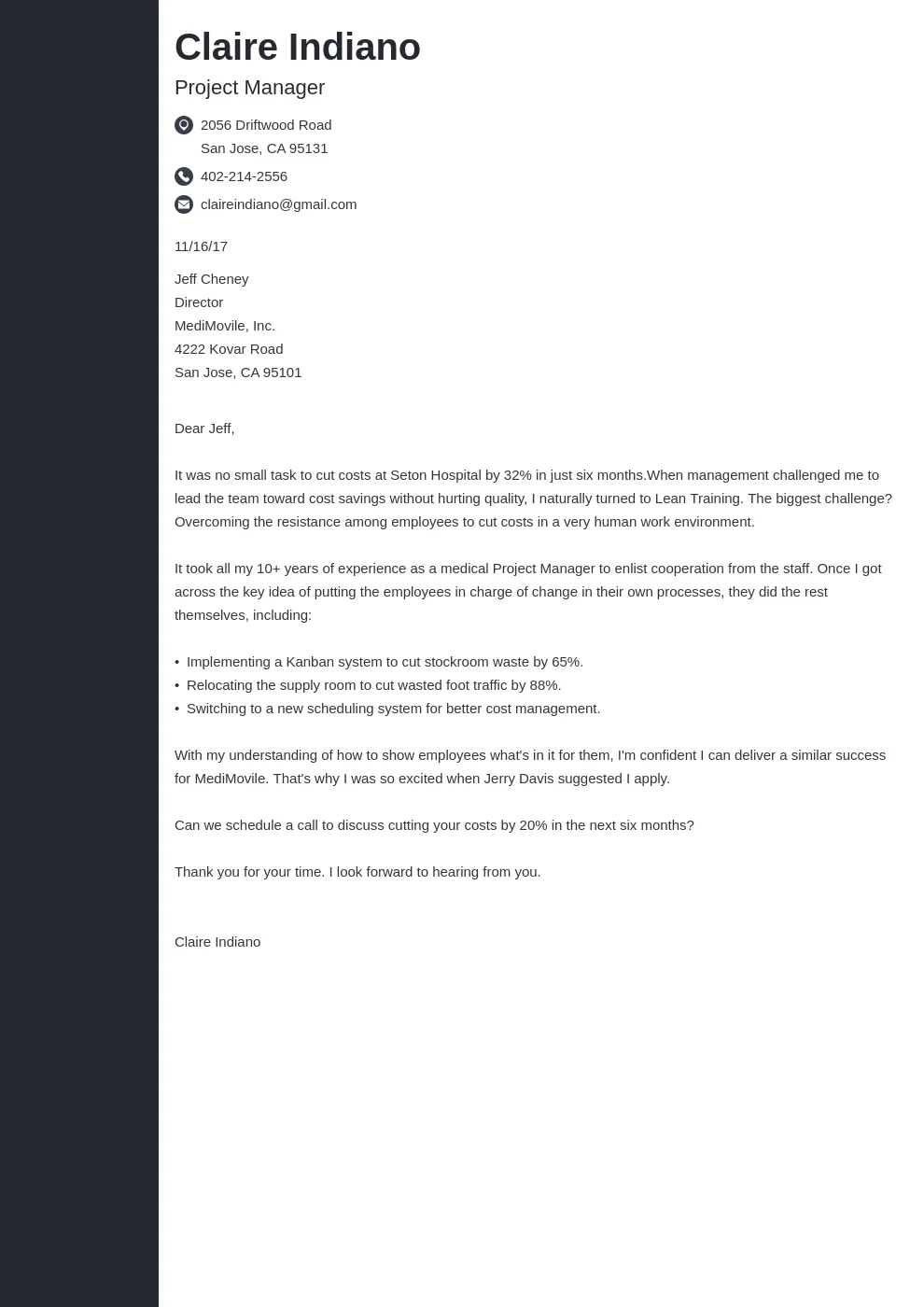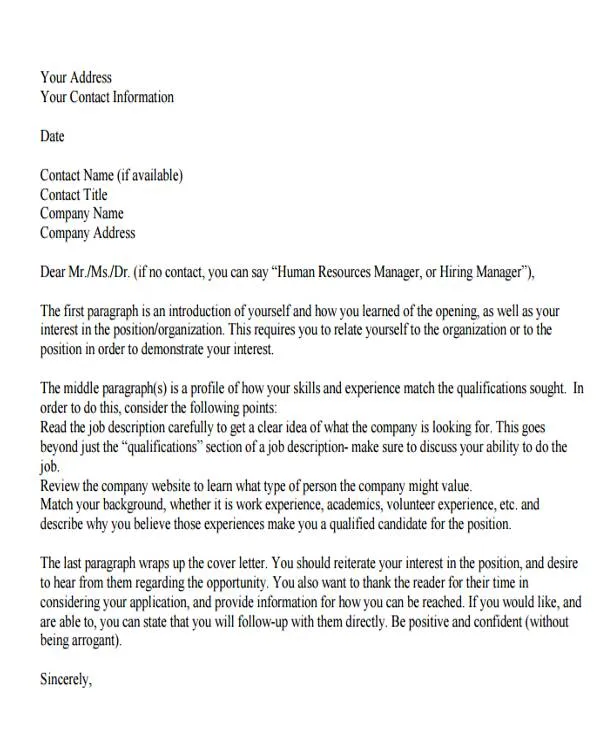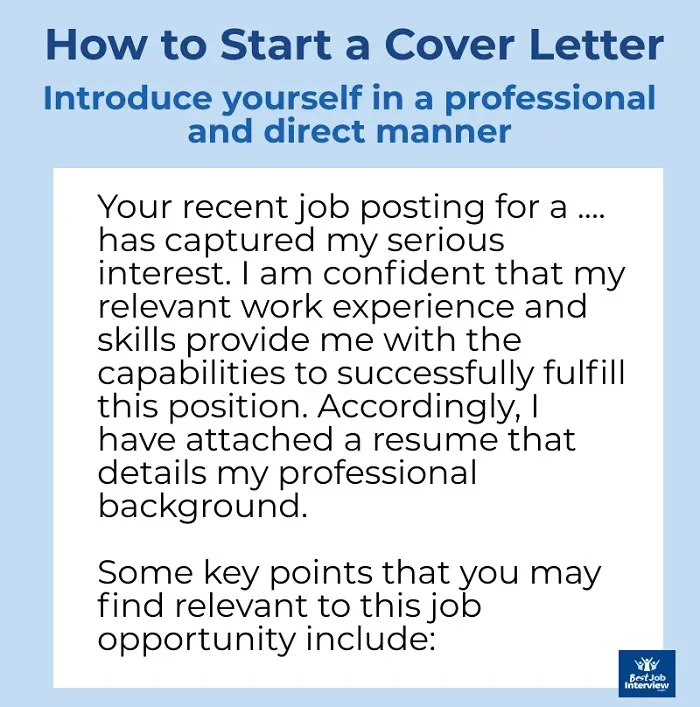Why Cover Letters Still Matter
In an era dominated by online applications and digital interactions, the humble cover letter might seem like a relic of the past. However, the reality is quite the opposite. A well-crafted cover letter remains a critical component of any successful job application. It offers a unique opportunity to go beyond the confines of your resume and connect with the hiring manager on a more personal level. Think of it as your initial handshake, your first impression in written form. In today’s competitive job market, where hundreds of applications can flood a single opening, a cover letter can be the deciding factor in whether your application even gets a second look. Neglecting this tool is like leaving money on the table, a missed chance to showcase your qualifications and stand out from the crowd. The modern cover letter is not just a formality; it’s a strategic instrument that can significantly enhance your chances of landing an interview. Many employers still highly value a cover letter, especially for roles requiring strong communication and writing skills, which are applicable across industries.
Enhancing Your Application
One of the primary benefits of a cover letter is its ability to significantly enhance your overall application. While your resume provides a factual account of your experience and skills, the cover letter allows you to provide context, elaborate on achievements, and explain any gaps in your employment history. This extra layer of information helps the hiring manager understand the ‘why’ behind your qualifications. It gives you the space to articulate your career goals, express your genuine interest in the company and role, and demonstrate your understanding of their needs. A resume alone might not fully capture your potential or communicate the value you can bring to the organization. A cover letter enables you to tell a compelling story, connect the dots between your experiences and the job requirements, and position yourself as the ideal candidate. By presenting a comprehensive and tailored overview of your suitability, you enhance your application’s impact and make it more memorable.
Highlighting Relevant Skills

A well-written cover letter allows you to strategically highlight the skills and experiences that are most relevant to the specific job you’re applying for. Unlike a resume, which provides a general overview, your cover letter can be tailored to emphasize the qualifications that directly align with the employer’s needs. This is where you showcase your ability to match the job requirements, providing concrete examples of how you’ve used specific skills in previous roles. For instance, if the job description emphasizes project management expertise, you can use your cover letter to provide a brief anecdote about a project you successfully led, detailing your role, the challenges you overcame, and the positive outcomes achieved. This personalized approach demonstrates not only that you possess the necessary skills but also that you understand the role and are capable of excelling in it. Tailoring your letter to the job is essential, as it shows the hiring manager that you’ve carefully considered the position and have the specific competencies they seek.
Demonstrating Your Personality
Your cover letter is one of the few opportunities to inject your personality into your application. While your resume should remain professional and concise, your cover letter can be used to reveal your enthusiasm, communication style, and unique perspective. This is your chance to distinguish yourself from other candidates who may have similar qualifications on paper. Use a tone that reflects your personality, whether that’s professional, creative, or detail-oriented. Share a brief anecdote, express your passion for the industry, or explain what genuinely excites you about the company or the role. This personal touch helps the hiring manager to get a sense of who you are beyond your skills and experience. Remember to maintain a professional tone, but don’t be afraid to let your personality shine through. This can help you build a connection with the hiring manager and make your application more memorable.
Showcasing Your Enthusiasm
One of the most significant benefits of a cover letter is the opportunity to showcase your genuine enthusiasm for the position and the company. A generic application can easily be spotted, but a cover letter that expresses a sincere interest in the specific role and the organization’s mission can make a lasting impact. Demonstrate that you’ve researched the company and understand its values, its products or services, and its current projects. Explain why you’re excited about the opportunity and how your skills and experiences align with their goals. This level of engagement signals to the hiring manager that you’re not just looking for any job but are specifically interested in this one. This enthusiasm can set you apart from candidates who may simply be applying for a wide range of jobs. Expressing genuine interest demonstrates your commitment and increases your chances of being selected for an interview.
Expanding on Your Resume

A cover letter allows you to expand on the information presented in your resume, providing additional context and depth to your qualifications. You can elaborate on specific projects, explain career transitions, or clarify any gaps in your employment history. This is a chance to showcase the ‘story’ behind your resume, which helps the hiring manager to understand your career journey and the reasons behind your decisions. Instead of simply listing responsibilities, use your cover letter to detail the challenges you faced, the solutions you implemented, and the positive outcomes you achieved. You can also use it to highlight skills and experiences that might not be immediately apparent from your resume alone. By providing this additional information, you give the hiring manager a more comprehensive picture of your capabilities and your suitability for the role.
Overcoming Applicant Tracking Systems (ATS)
In today’s digital world, many companies use Applicant Tracking Systems (ATS) to screen applications. These systems scan resumes and cover letters for keywords, and only the applications that meet certain criteria are forwarded to a hiring manager. A well-written cover letter can help you navigate the ATS. It allows you to strategically include keywords that match those found in the job description, increasing the likelihood that your application will pass the screening process. However, it’s important to use these keywords naturally and avoid keyword stuffing. Your cover letter should read smoothly and demonstrate your understanding of the role and the company. By tailoring your letter to the specific job and incorporating the right keywords, you can significantly improve your chances of getting your application seen by a human. This is a strategic approach to job searching, ensuring that your application gets the attention it deserves.
Tailoring Your Letter
One of the most crucial benefits of a cover letter is the opportunity to tailor your application to the specific job and company. This level of personalization shows that you’ve taken the time to understand the role and the organization, which sets you apart from applicants who submit generic applications. Customize your letter by referencing the company’s values, the specific requirements of the job, and the challenges the company is facing. Explain how your skills and experiences align with their needs and how you can contribute to their success. This level of detail demonstrates your genuine interest and your commitment to the role. A tailored cover letter shows that you’re not just applying for any job, but you’re specifically interested in this opportunity and have the qualifications to excel.
Researching the Company

The cover letter is an excellent platform to demonstrate that you have researched the company. This research demonstrates to a hiring manager that you have taken the time to understand the company’s mission, its values, its recent projects, and its place in the market. Mention specific aspects of the company that resonate with you, such as their commitment to sustainability, their innovative approach to product development, or their positive company culture. You can also reference recent news articles, company announcements, or industry trends to show that you are informed about the company’s activities. This level of research demonstrates your genuine interest and shows that you are serious about the opportunity. It also provides you with an opportunity to connect your skills and experiences to the company’s goals and to explain why you believe you are a good fit.
Formatting Your Cover Letter
Formatting your cover letter correctly is also crucial, and this involves choosing a professional font (like Arial or Times New Roman), using clear and concise language, and ensuring your letter is easy to read. Use bullet points to highlight key skills or accomplishments. Keep the letter to one page, and include a professional salutation (e.g., ‘Dear Mr. /Ms. [Last Name]’) and a proper closing (e.g., ‘Sincerely’). Proper formatting is not merely about aesthetics; it reflects your attention to detail and professionalism. Ensure that the letter is free of grammatical errors and typos; proofread it multiple times. The overall presentation of your cover letter should be polished and reflect the high standards you apply to your work. A well-formatted cover letter makes a positive first impression and reinforces your qualifications for the job.
Conclusion
In conclusion, the benefits of cover letters are clear and undeniable. From enhancing your application and highlighting relevant skills to showcasing your enthusiasm and helping you navigate ATS, a well-crafted cover letter is an essential tool in the job search process. By taking the time to create a personalized, tailored, and well-formatted cover letter, you significantly increase your chances of landing an interview and ultimately securing your dream job. Don’t underestimate the power of a cover letter—it can be your key to unlocking new career opportunities.
